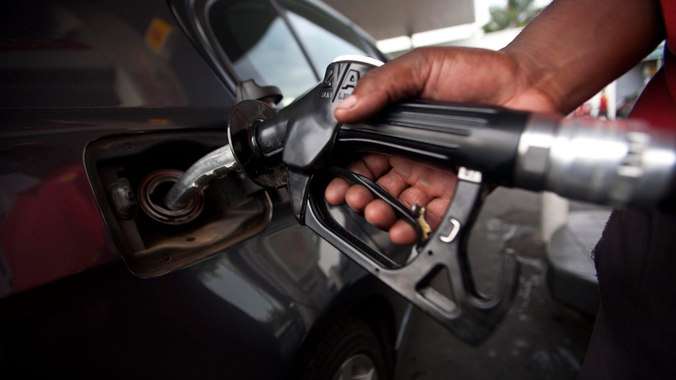Crude oil price leads to fuel hike: Zera

Tendai Mugabe Senior Reporter
The gradual upward drift in Zimbabwean fuel prices, with blend now $1,51 a litre at many service stations, is the result of the jump in crude oil prices, according to the Zimbabwe Energy Regulatory Authority
Zera chief executive Engineer Gloria Magombo said last week: “The price changes in the country are a reflection of the movement of the Brent crude oil prices in the international fuels market.”
Also read…
-
Oil steadies above $55
-
Brent oil hits 1-month low on dollar rally
-
Zim to save $180m on fuel imports
-
Brent crude oil nears $59
-
Oil falls below $62 a barrel
Crude oil has since mid-January sold as low as $40 a barrel of 159 litres. Recently, crude oil prices have started to rise.
According to Nasdaq.com a barrel of Brent crude oil was selling at $59,07 as of last week. The Brent price is one of the major yardsticks for international oil trade.
Eng Magombo said Zera conducted weekly price surveillance in major cities to ensure compliance by fuel dealers with the provisions of Statutory Instrument 20 of 2015 which determines maximum petroleum prices.
Some Zimbabwean fuel dealers say the rises are worsened because some international companies are almost monopolising the cheap pipelines from Beira through Feruka to Msasa by paying transport fees as much as two years in advance forcing others to resort to the more expensive road transport.
“Government has introduced a new policy that anyone who wants to use the pipeline should pay pipeline levies in advance and these companies are taking advantage of that to congest the pipeline,” said a local fuel dealer who refused to be named.
“Local dealers do not have cash to pay upfront and foreign companies are aware of the liquidity crunch facing our Government and they are paying pipeline fees well in advance for up to two years which means that they now literally own the pipeline.
“Although the Zimbabwe Energy Regulatory Authority reserves the right to set the maximum prices of fuel in the country, these companies have a lot of influence in the process because they have the largest stocks of fuel.”
However, Zera said liberalisation of the sector was a Government policy and currently over 30 companies were licensed to procure fuel.
“The participation of foreign companies in Zimbabwe is sanctioned by Government through relevant laws and bodies which deal with competition, investment authorisation and policy,” said Zera chief executive Engineer Magombo.
“Zera will ensure that the playing field in terms of regulations which guides operations in the sector is level in terms of standards of fuel and infrastructure among others.”
Local fuel prices have been hiked six times during the period between January and March this year.
The latest hike was effected last Monday, with blended fuel now selling at many service stations at $1,51 a litre up from $1,49.
According to figures released by Zera, fuel prices only slumped twice during the period under review.
Zimbabwean fuel is now amongst the most expensive in the region as a result of taxes and expensive distribution costs.
As of March 23, Angola was selling unleaded petrol at 83c and diesel at 56c. Angola is a major producer. Zambia’s unleaded petrol was selling at $1,07 while diesel cost 93 cents while Botswana was selling both at 72c. South Africa was selling unleaded petrol at 94c while diesel sold for 84c. Mozambique was selling unleaded petrol at $1,33 and diesel at $1,04 with Malawi selling at $1,52 and $1,53 respectively.
Econometer head of research Mr Takunda Mugaga blamed Zera for failing to protect fuel consumers.
“It seems we have failed to get support from Zera. They always support fuel companies even when it is clear that our economy cannot sustain some of these prices,” he said.
Mr Mugaga said the fuel industry was being dominated by a few players — pushing out any competitors.
“The fuel industry in Zimbabwe is oligopolistic in nature and you realise that there are three or four players who are setting the pace for price and output,” he said.
“It is a market which is prone to collusion where you see new entrants finding it difficult to survive.”








Comments